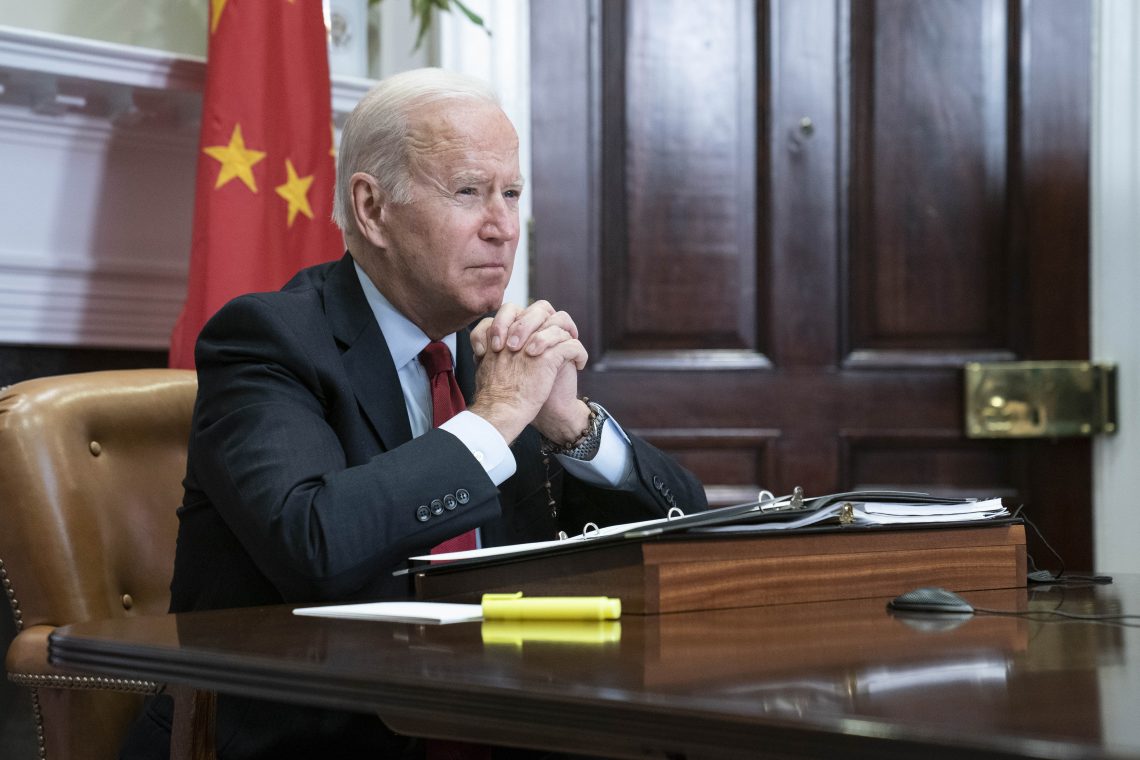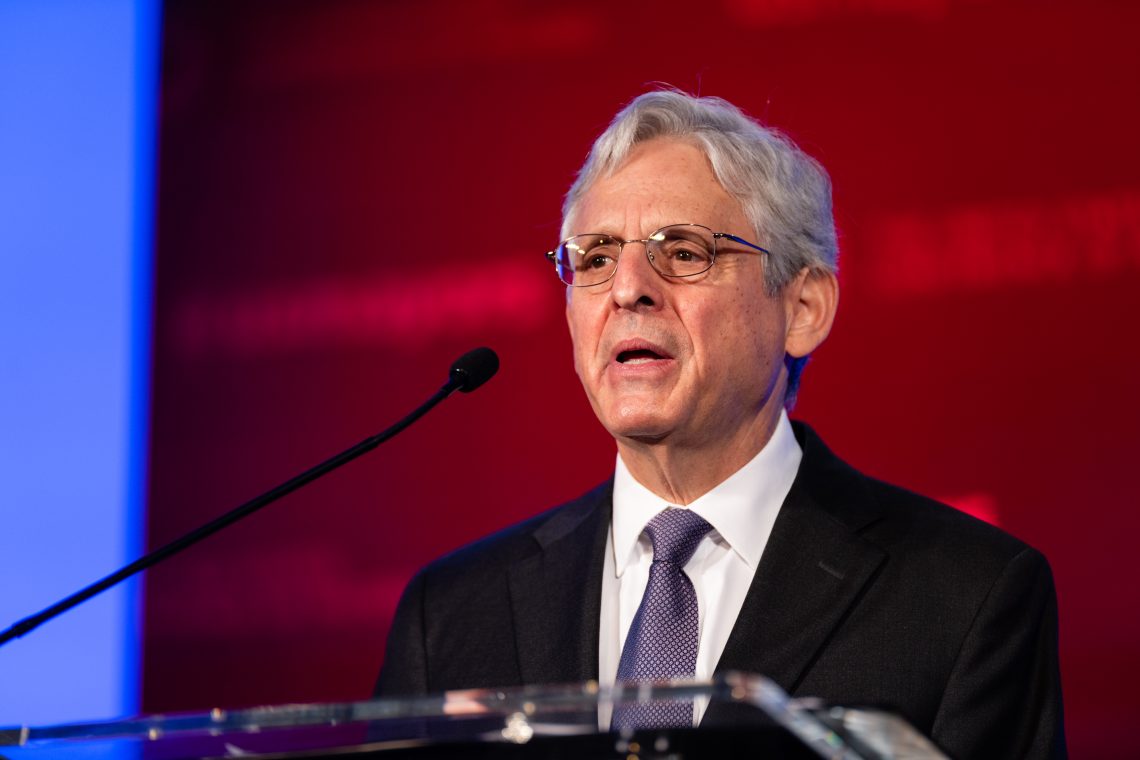U.S. China policy after Ukraine
President Biden’s China policy has emphasized continuity over assertiveness. Nothing appears likely to shake it out of this middling course except new circumstances.

In a nutshell
- President Biden has opted for the Obama approach to China
- Congress and some Biden officials favor a tougher stance
- A midterm loss or flare-up in tensions could jolt this policy inertia
The aftermath of the Ukraine crisis will likely ripple across United States foreign policy – and not just regarding Europe. The implications for Washington will be global. Relations with China, arguably the most important issue in American foreign affairs, could well be affected. If there are substantive changes, however, they are likely to be driven by influential forces such as shifting to a Republican-led Congress and actions by Beijing rather than a major rethink or shift from the Biden administration. U.S. policies will be more reactive than proactive.
Middling course
After taking over the Oval Office, President Biden made clear he intended to replace the China policies of the last president with those practiced under the Obama administration, where he served as vice president. This approach revolved around a dual track of competition and cooperation, seeking to mitigate confrontation with Beijing by reinforcing strategic stability in the Indo-Pacific while at the same time looking for areas to constructively engage the Chinese regime.
The strongest signal that the Biden administration would prefer continuity over change in its China policy was the release of a new U.S. Indo-Pacific strategy in February, at the height of the Ukraine crisis. The strategy barely mentioned China. While the U.S. plan demonstrably asserts the importance of “confronting the challenge” of climate change, there is no complementary statement about confronting Beijing’s aggressive and destabilizing global activities. The strategy emphasizes elements of continuity such as working with allies. On the other hand, it breaks no new ground whatsoever on critical elements of U.S.-China competition such as trade and military defense.
The White House continues to press for continued diplomatic and military assistance to Taiwan, but it maintains a measured tone with Beijing over the issue.
Mr. Biden’s strategy is consistent with other signals coming from his administration. For instance, although the U.S. publicly stated it would not send any senior official to the Winter Olympics in Beijing because of the ongoing genocide against the Uighurs, the administration has done little to highlight the issue or engage other nations to press a wider boycott. The White House continues to press for continued diplomatic and military assistance to Taiwan, but it maintains a measured tone with Beijing over the issue.
Another sign of the Biden administration tilting toward a middling course is the Department of Justice’s China Initiative, established to identify and prosecute theft of trade secrets, hacking and economic espionage, while safeguarding critical infrastructure against Chinese threats and combating covert efforts to influence U.S. policymakers. Attorney General Merrick Garland announced the initiative is under review. The initiative’s website has not been updated for months, suggesting that work has paused, and the U.S. is demurring from confronting Beijing more aggressively.
Momentum for inertia
There are voices in the administration that would like to press for a more aggressive approach toward China. The Director of the Federal Bureau of Investigation, for instance, recently explicitly highlighted security threats posed by China. In addition, several Defense Department officials, off the record, have quietly called for more muscular defense policies. That said, there is little in the administration’s defense planning that suggests the U.S. will move in that direction. Meanwhile, both the State Department and National Security Council staff seem content with current policies. Though there is increasingly bipartisan support in Congress for a tougher approach to China, that has not been reflected in legislation. The House of Representatives, for instance, recently passed the COMPETES Act, which was ostensibly billed as a vehicle for competing with China. The bill hardly mentions Beijing and is mostly packed with measures to further domestic and climate policies.
While the administration continues to seek cooperation with China on global climate action, those overtures have been largely rebuffed. But the Biden team has not introduced alternative policies to address the impasse. It has offered no new initiatives on trade, even though U.S. friends and allies, particularly in the Indo-Pacific, have pressed for a more activist trade policy. In addition, the U.S. has offered no response to moribund trade negotiations with Beijing.

There is also agitation from outside the government, across the political spectrum, calling for a changed approach. One notable example is former defense official Eldridge Colby, who argues in The Strategy of Denial (2021) that all U.S. power should be focused on blocking Chinese hegemony in the Indo-Pacific. While there remains a vigorous public debate over a “pivot to Asia,” the administration appears unmoved to dabble significantly with the status quo. Indeed, the recent confrontation over Ukraine and the embarrassing withdrawal from Afghanistan, have if anything, made the administration more risk-averse to backing new defense commitments.
Likewise, the administration appears impervious to voices that would seek even more accommodation to China. One clear example is nuclear policy, where despite advocacy within the president’s party for decreased reliance on the U.S nuclear arsenal, the administration appears to support maintaining an adequate nuclear deterrent, in part because of the growing size of China’s strategic nuclear forces.
Narrowing scope
The Obama administration persisted in its competition and cooperation strategy with China throughout two presidential terms, despite its yielding little in the way of tangible results. The Biden administration is staffed by many influential holdovers from the Obama years, suggesting that prospects for radical policy reshaping are minimal.
There are, however, forces that could pull the administration in a more aggressive direction. One is the U.S. midterm elections. Polls suggest they could bring a sea change in Congress. Many expect Republicans to gain control of the House, which would then be much more likely to press for more muscular policies on countering China. Congressmen Mike Rogers and Michael McCaul, who would likely chair the powerful House Armed Services and Foreign Affairs Committees, respectively, are both planning ambitious legislative agendas. The limiting factor will be the Senate, where neither party is likely to achieve a dominant position.
The administration will continue to confront China where it must and cooperate where it can.
Indeed, the most influential trend in driving U.S. policy is likely to be China. The degree to which China is willing to force open competition and economic decoupling could be pivotal. The Biden administration’s domestic agenda is lagging in implementation. The scope for vigorous domestic policies is likely to narrow even more in the near term, unless the Democrats can avoid dramatic midterm electoral losses and a lackluster economic performance, as well as defuse such divisive issues as immigration, border security and electoral reform. With those liabilities, President Biden can ill afford another high-profile foreign policy reversal, particularly on China.
By far the most likely scenario is that despite agitation from Congress and Chinese activities, the administration will continue to split the difference by confronting China where it must and cooperating where it can. If there is a real wild card here, it is the possibility of aggressive action from China, which might result in what would otherwise be a very improbable shake-up in the Biden policy team. Of course, the chances of that are only known by Beijing.






